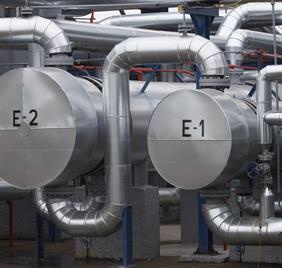When it comes to efficient heat transfer in various industrial processes, fin fan heat exchangers have proven to be an invaluable asset. These innovative devices play a crucial role in the smooth operation of many industries. In this article, we will explore the remarkable advantages of fin fan heat exchangers and their significance in diverse applications.
Understanding Fin Fan Heat Exchangers
Fin fan heat exchangers, also known as air-cooled heat exchangers (ACHE), are essential components used to remove excess heat from various processes. They consist of finned tubes that facilitate heat transfer by utilizing ambient air to cool the process fluid circulating within the tubes. This cooling mechanism makes them highly efficient and ideal for several industrial applications.
Advantages of Fin Fan Heat Exchangers
-
Energy Efficiency: Fin fan heat exchangers are renowned for their energy efficiency. Unlike traditional cooling systems that require large amounts of water, fin fan heat exchangers use the surrounding air, eliminating the need for water consumption. This energy-saving aspect not only reduces operational costs but also minimizes the environmental impact.
-
Space-Saving Design: One of the significant advantages of fin fan heat exchangers is their compact design. They occupy considerably less space compared to water-cooled systems, making them an ideal choice for industries with limited real estate.
-
Versatility: Fin fan heat exchangers can handle a wide range of temperature and pressure conditions, making them versatile enough to suit diverse industrial processes. Whether it's in chemical plants, refineries, power generation, or HVAC systems, these heat exchangers adapt effortlessly to various applications.
-
Low Maintenance: Maintaining fin fan heat exchangers is relatively simple. They do not require constant monitoring or chemical treatment, as is the case with water-cooled systems. This low maintenance characteristic translates to cost savings and reduced downtime for industries.
-
Corrosion Resistance: Traditional cooling systems that rely on water are susceptible to corrosion. Fin fan heat exchangers, on the other hand, are less prone to corrosion, as they don't use water for cooling. This attribute contributes to their long lifespan and reliability.
-
Remote Location Suitability: Industries operating in remote locations or areas with water scarcity can benefit significantly from fin fan heat exchangers. Their independence from water sources allows businesses to set up operations in challenging environments without compromising efficiency.
Applications of Fin Fan Heat Exchangers
-
Oil and Gas Industry: In the oil and gas sector, fin fan heat exchangers are widely used for cooling the hydrocarbon process streams. They play a vital role in maintaining optimal temperatures in various stages of oil refining and natural gas processing.
-
Chemical Plants: Chemical processes often generate excess heat that needs to be dissipated. Fin fan heat exchangers effectively remove this heat, ensuring safe and efficient operation within chemical plants.
-
Power Generation: Power plants utilize fin fan heat exchangers to cool turbine exhaust steam, condensing it back into water for reuse. This process increases the overall efficiency of power generation.
-
Refrigeration and HVAC: In commercial and industrial air conditioning systems, fin fan heat exchangers assist in cooling the refrigerant gases, ensuring proper functioning of the HVAC systems.
Conclusion
Fin fan heat exchangers have undoubtedly revolutionized the way industries manage excess heat, offering numerous benefits that enhance operational efficiency and sustainability. From energy conservation and low maintenance to versatile applications, these heat exchangers have proven their worth in various industrial settings. Embracing fin fan heat exchanger can undoubtedly elevate the performance of industrial processes while reducing environmental impact, making them an indispensable asset for any forward-thinking industry.


No comments yet